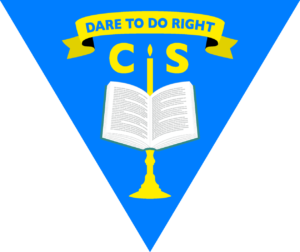Case Study: Moderation of Online Learning, Teaching and Assessment in Croftfoot Primary School
Case Study: Moderation of Online Learning, Teaching and Assessment in Croftfoot Primary School

Rationale: In Croftfoot Primary School the senior leadership team have ensured that moderation is an integral part of ongoing learning, teaching and assessment. As the school transitioned to online learning the headteacher did not want to lose the rich professional dialogues around planning for learning, teaching and assessment that her staff regularly engaged in or the positive impact that this had on children’s learning experiences.

Action: To ensure opportunities for moderation continued all class teachers and support for learning workers were allocated planning groups with responsibility for planning the learning, teaching and assessment of both online and in school learning experiences for children. Meeting online they reviewed the tracking data gathered for learners at the end of Term 2 including quantitative data generated by standardised assessments, SNSA and naturally occurring assessment evidence from daily learning and teaching experiences. Through online professional dialogue this data was then triangulated with qualitative data such as GMWP and pupil learning conversations to support professional dialogue and provide greater insight into progress made to date in addressing the learning gaps that had been identified upon the children’s return to school in August. The staff then worked online in their planning groups, using their agreed analysis of this data, to plan effectively for progressive remote learning in January. This planning involved professional dialogue around the rationale for the experiences & outcomes being chosen, the LI & SC reflecting the learning within the experiences and outcomes and the pedagogical approaches that would most effectively enable the children to overtake the key learning that had been identified as essential in ensuring that they continued to maintain and build on the progress they had made between August and December. All staff in a planning group had access to each other’s showbie platform and therefore were able to view the online lessons, completed tasks and feedback provided for all children. Subsequently, this enabled staff to engage in online moderation of children’s work, via professional dialogue around whether or not the online work produced by the children demonstrated that they had effectively over taken the success criteria and whether pupil and teacher feedback was evaluative and supported learning. Professional judgements on learners’ progress made as a result of these online dialogues were then used to inform next steps for individuals and groups of learners.
Impact: Through identifying opportunities for practitioners to continue to moderate their planning during online learning the children’s learning experiences continued to be progressive by ensuring that the experiences & outcomes used to plan effectively focused on areas of identified gaps in their key learning, that agreed LIs & SC clearly explained what they were learning and what they had to do to be successful learners, that written and oral feedback given was based on the SC and supported learning/next steps and that that children’s completed tasks evidenced that the SC had been overtaken. Engaging in this online moderation has enabled practitioners to continue to develop their shared
understanding of standards and expectations for learners and has resulted in moderated, effective and progressive online learning experiences being provided for all children.
Through having access to each other’s lessons and resources via the showbie platform practitioners are able to share their daily online practice and resources with each other and include professional dialogue around the impact of these in their weekly online planning meetings. As a result of this shared practice and professional dialogue practitioner confidence and skill in the use of various online learning techniques is increasing and leading to greater consistency in the quality of online learning across the school, while the continued opportunities for moderation are further supporting practitioners’ expectations of learners as they progress within and across levels.
Next Steps: The moderated online learning experiences that are currently being created by each planning group will support children’s learning / homework when schools reopen to all children.
The CLOL has been working in the school with children identified from TIG groups. These children will now re – engage in their class online learning with the CLOL joining each planning group to ensure that these TIG children continue to focus for part of each day on their own individual targets. Subsequently, this will enable the CLOL to begin daily focused work in the school with a different set of TIG children.
